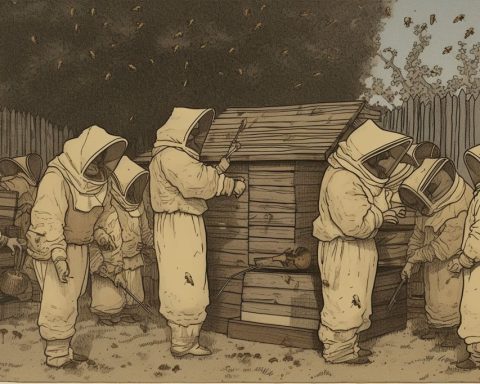The South African provincial Health Department has recently reported a significant increase in poisoning cases involving children, with over a third of such incidents attributed to pesticides in homes. In 2022, 58 severe cases of pesticide poisoning and eight fatalities were recorded, calling for urgent action to address this issue.
The Concern of Pesticide Poisoning
The Western Cape’s Poisons Information Helpline has received over 1,000 calls related to pesticide exposure, with commercial pesticide exposure being the primary cause. However, the province has also witnessed an increase in street-bought pesticides, including the highly toxic ‘halephirimi.’ The actual number of severe pesticide poisoning cases may be higher, as many incidents go unreported.
Factors Contributing to Pesticide Poisoning
The data from 2022 revealed that 49% of attended poisoning exposure calls were accidental, while 47% were intentional. Disconcertingly, 35% of these calls involved children under the age of 12. South Africa’s unfavorable and crowded living conditions provide a suitable breeding ground for pests, leading people to seek cheap and effective solutions to combat the problem. Unfortunately, this has resulted in increased exposure to harmful pesticides.
Harmful Effects of Street Pesticides
Street pesticides have gained popularity because of their fast-acting, cheap, easily accessible, and highly effective nature. However, these solutions are extremely toxic and can lead to severe health complications, including death. The conventional anticoagulant rodenticides, which require animals to consume multiple doses over several days, are often deemed too slow and expensive.
The Call to Prioritize Safety
The provincial Health Department has issued a warning to the public to exercise caution when using pesticides at home, particularly with children around. This issue extends beyond South Africa, as many developing nations face similar challenges in pest control and poisoning cases. It is essential to prioritize safety and consider alternatives to harmful chemicals for pest management.
Emergency Contact Information
South African residents can report incidents to 112 (cellphone) or 10177 (landline) in case of emergencies. Additionally, the Poisons Information Helpline can be reached at 0861 555 777.
The risks of pesticides in homes are a significant concern, as evident in the rising number of poisoning cases in South Africa. By raising awareness and promoting safer pest control practices, vulnerable individuals, especially children, can be protected from harm. Through combined efforts, it is possible to create a safer environment for all and significantly reduce the devastating consequences of pesticide exposure.











